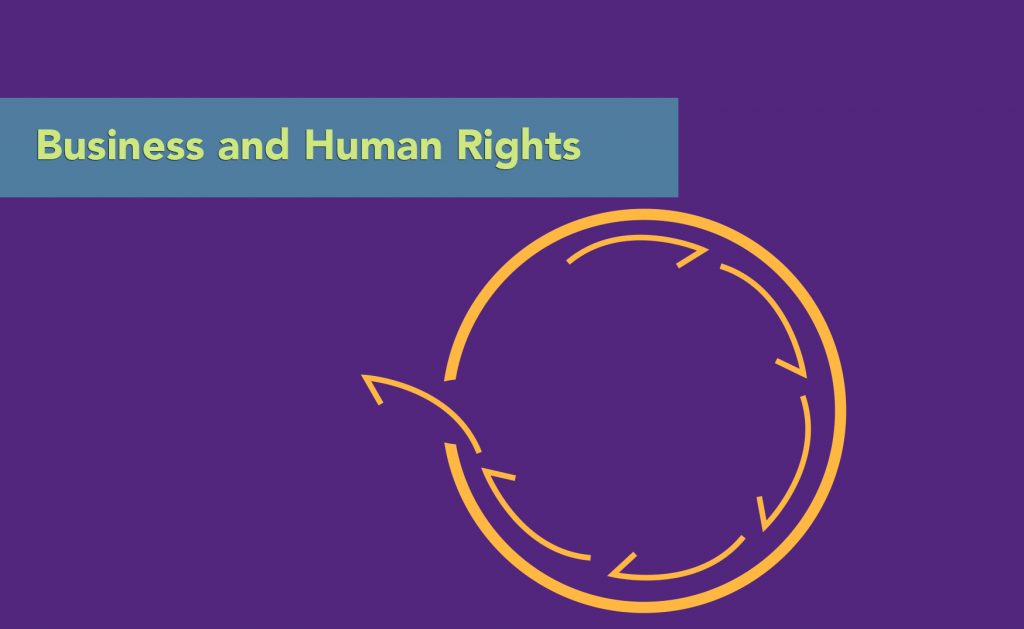Change Takes Time

My internship experience this summer has both inspired me and opened my eyes to the difficulty of BHR work, and consequently, the need for multiple approaches. It has cemented my desire to work to advance a business and human rights agenda in the future by showing me, through example, other warriors fighting for that agenda. It has also shattered any remaining idealistic vision I held about governments’ willingness to expend capital pursuing a human rights based agenda. Most importantly, it nullified this idea that I have to discover the one kind of BHR work I most believe in – policy level or grassroots work, non-profit or private sector CSR. Progress towards accountable business that contributes to the communities within which they work results from the combined efforts of all of these different kinds of BHR work. I am finding myself drawn to ICAR’s policy level work pushing governments to hold businesses accountably, but this does not mean I believe more strongly in the work they do over other relevant organizations. BHR advocates may be equipped for different roles in the broader movement, but driving holistic change in corporate culture does not happen because of one sector, one direction, or one organization. This summer I have come to more firmly believe that collaboration between various stakeholders is crucial to address the totality of the problem, as ICAR believes.
Various government or corporate actors can be easily discouraged from engaging in meaningful change and take on more responsibility. They possess an unwillingness to exhaust political capital or companies would be increasingly responsible to investigate, monitor and disclose supply chains. The role of civil society organizations such as ICAR is not simply to find opportunities for BHR – they must also collect the evidence, frame the argument and convince the relevant actors to execute. They must get governments to act.
At the beginning of my summer, I was excited for my assigned research to challenge me. But I didn’t realize the research is simply one piece of the puzzle. I am still a strong believer that any good research or evidence to inform better policy represents progress in the BHR field. Yet without effective framing and advocacy, the research fails to have the full effect. Global and legal frameworks hold the power to jumpstart more responsible business conduct and sustainable practices. However, in order for such progress to occur, BHR advocates must secure not only the passing but also the proper implementation of such policy. I have seen brilliant CSO stakeholders working with business and government to do this – it can be done. But it takes targeted, detailed work to get there.
The ability to bring people together who advocate for the same issues from different perspectives can produce effective results. I have been able to witness the way ICAR brings together various groups to amplify their messages and uses these networks and coalitions to widen discussion and engagement with issues as well as increase the pressure on government and corporations to act. ICAR is currently working to encourage SCOTUS to stand up to the abuse of corporate power in the case Jesner v. Arab Bank, PLC. To do so, they have formed a coalition with other organizations that are also dedicated to seeing corporations held liable under the Alien Tort Statute (ATS). This coalition seeks to spread ICAR and others’ advocacy message and build out a strategy to play to each of these organizations strengths. Environmental and human rights organizations partner with academic scholars, and with communications managers and lawyers to take advantage of different levers to promote change, combining expertise of different issue-areas or varying action capabilities.
This strategy for change has in turn fueled my interest in gaining experience working with organizations that use different levers to promote change. BHR leaders who understand the complexities of how such approaches promote change enables them to facilitate the collaboration between distinct groups that I have witnessed ICAR foster thus summer. Doing policy research and advocacy at ICAR has helped me realize I enjoy working in the weeds of policy. While challenging in the sense that the immediate impact is not always visible, I enjoy analyzing what we have the capacity to do, strategizing about how to effectively affect that specific change, and taking concrete steps for the realization of that policy or implementation plan. The business and human rights community is filled with bright minds crafting laudatory initiatives, but there are always loopholes and implementation problems. Civil society advocacy to pressure governments to properly administer existing legislation, as well as implement policy, is difficult but a crucial tool to protect human rights.
Change takes time. Rather than discouraging me, witnessing how much work and effort is invested in the smallest of policy advances shows me the importance of having a critical mind. As one of the associates in my office told me the other day, a business and human rights advocate must always question if we can do more while not being complacent about what we have done. Enforcement of human rights-oriented laws and policies does not simply happen; ongoing advocacy efforts ensure the proper use of legislative frameworks established as tools to promote human rights accountability. ICAR’s lobbying coalitions propel the legislative BHR agenda forward. I entered the ICAR office in May with an open mind, excited to learn from such accomplished human rights advocates. Almost twelve weeks later, I am leaving with visions of one day emulating them and their work.
